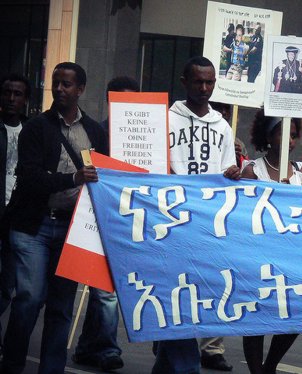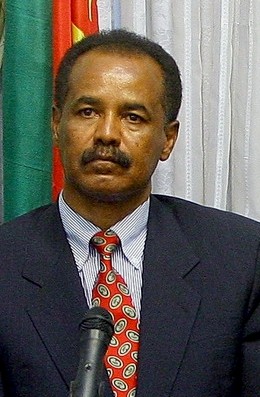|
Eritrea Politics | Human rights Calm Eritrea avoids talks of rebellion
"Nowhere is the news blackout more extreme than in Eritrea, where the government has banned independent media since 2001," reports Mohamed Keita of the US-based Committee to Protect Journalists (CPJ), adding that the Ministry of Information blocks any news about the popular uprisings in North Africa and Djibouti.
In such a climate, it is difficult to take the first step of protest. But the large Eritrean Diaspora meanwhile has started dreaming of an Eritrean mass protest and revolution. Discussions and analyses about how a riot could be sparked are appearing by the dozens in the internet. One has to get the message through to the "passionate, enraged people in Asmara," holds Michael Abraha Thu, outlining a "Road map for the Eritrean Revolution." Yosief Ghebrehiwet meanwhile schematically outlines the "lessons from the Egyptian uprising," analysing the different factors needed to create an Egypt-like revolt. These discussions by intellectual dissident Eritreans are getting too abstract for many compatriots. Some are already taking to the streets, making use of their democratic rights in their new host countries. The Swedish capital this weekend saw a "huge rally, where about more 300 Eritreans and other democracy activists participated, ... calling the youth to lead the popular uprising against the dictatorship in Eritrea." The many armed Eritrean rebel groups, mostly based in Ethiopia, have also heard the news about popular uprisings elsewhere. The exiled, armed Red Sea Afar Democratic Organisation told the 'Sudan Tribune' they urged Eritreans back home to start the unrest. Then, they would start an armed insurgency to assist the protesters. "The only option left to topple the authoritarian regime is by force, and we want to see an Egypt and Libya type uprising in Eritrea," rebel Ibrahim Haron told the Sudanese newspaper, adding, "We call upon the armed forces of the country to join the uprising." But the calls seem premature. Every report from Eritrea indicates the country is totally calm; almost like a cemetery peace. Dictator Afewerki meanwhile is busy opening damns, roads, exhibitions and seminars and receiving the odd diplomat, if one is to believe the Eritrean Ministry of Information. By staff writer © afrol News - Create an e-mail alert for Eritrea news - Create an e-mail alert for Politics news - Create an e-mail alert for Human rights news
On the Afrol News front page now
|
front page
| news
| countries
| archive
| currencies
| news alerts login
| about afrol News
| contact
| advertise
| español
©
afrol News.
Reproducing or buying afrol News' articles.
You can contact us at mail@afrol.com









